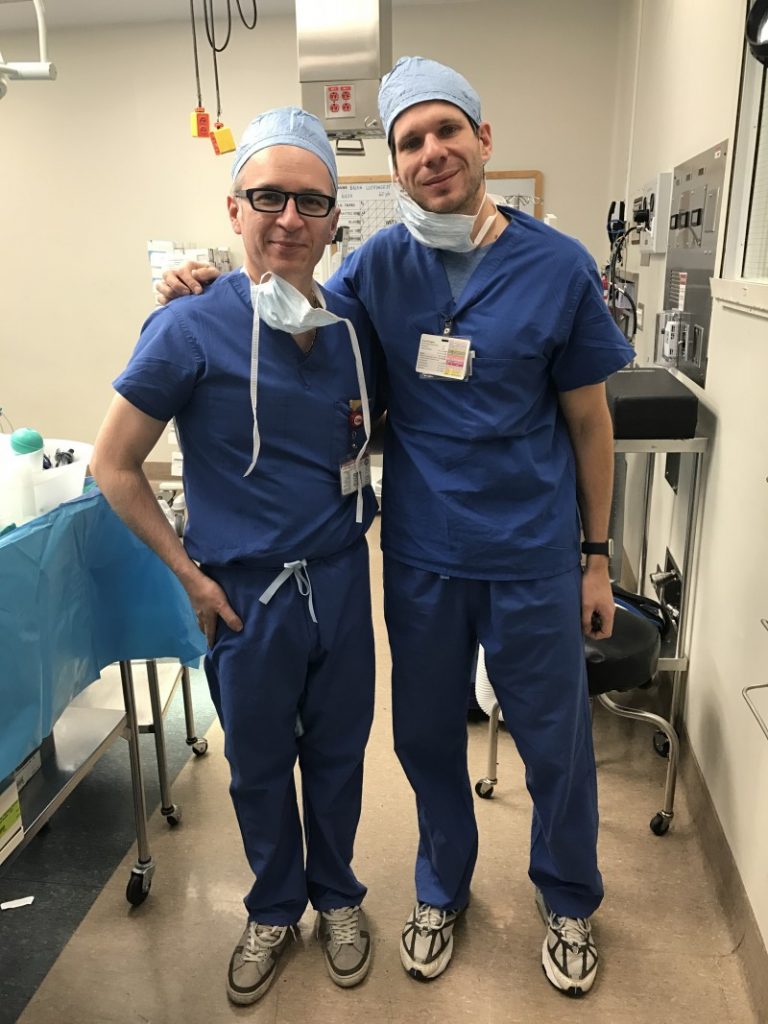Recently awarded a PhD in Information Systems from the Faculty of Business and Economics at the University of Lausanne, supervised by Professor Christine Legner, Thomas Boillat is just back from a stay at the renowned Stanford University in the USA. Working with a surgeon, he has developed a model application that enables medical teams in the operating theatre to view checklists using Google Glass. The aim of the application is to improve the effectiveness of the lists, increase patient safety and avoid potential surgical errors.
The person behind this unique collaboration was Professor Katarzyna Wac (University of Geneva) who put Thomas Boillat in contact with surgeon Professor Homero Rivas (Stanford). Professor Rivas was looking for ways of using checklists in Google Glass to increase their effectiveness and improve patient safety. The research being carried out by the doctoral student at HEC Lausanne – and his existing knowledge – exactly matched the type of person he needed. As a result, Thomas Boillat left Switzerland last July for a six-month stay as an invited researcher in the Medical School (Department of Surgery) with a sizeable challenge to tackle as soon as he arrived in the US.
An application welcomed in medical circles
Almost half a million patients die in operating theatres in the United States each year as a result of avoidable errors, while around two thousand people are faced with surgical errors over which part of the body is operated on (i.e. the surgeon operates on the wrong place). The lack of a systematic approach to checking methods has been identified as one of the sources of errors and hospitals have adopted the use of checklists, which are also used in numerous other areas such as aviation, for their ability to reduce human errors.
During his stay, Dr Boillat’s research focused on the use of Google Glass (augmented reality eyewear) as a “screen” to support surgeons in using checklists before embarking on an operation. This process replaces the use of paper checklists, which are difficult to read and too generic. How is it possible to design applications that provide support for individual routines of this kind? This line of enquiry led the researcher to develop a prototype application, the principle of which is that items on the checklist appear on the glass and the surgeon can therefore concentrate on the checks that need to be made.
The prototype was assessed in the operating theatre over a six-month period (during 50 operations preceded by 50 other procedures for observation only) and by a panel of six different surgeons. Their feedback helped to improve the prototype as the trial proceeded. The conclusive results showed that using the application via Google Glass ensures more effective use of the checklists. Moreover, the personalised – and contextualised – content of the lists provided real added value and reduced the time spent preparing equipment for surgical procedures. The researcher also had the opportunity to present his project to a keen audience from both the School of Computer Science and part of the Department of Surgery at Stanford.
He explains: “This was an exceptional project on many levels: the way I was approached to come and work at Stanford, the collaboration with Professor Rivas and the multidisciplinary aspect of my project. There aren’t many people in my field of information systems who get to go into operating theatres! In practical terms, it gave me the opportunity to learn more about the potential technologies that could support medical practitioners in their work in the future.”
Aside from the scientific and personal benefits, the experience is already offering Dr Boillat new opportunities, with a further collaboration with Stanford due to start next summer. The focus this time will be on developing an application that will guide surgeons during an operation.